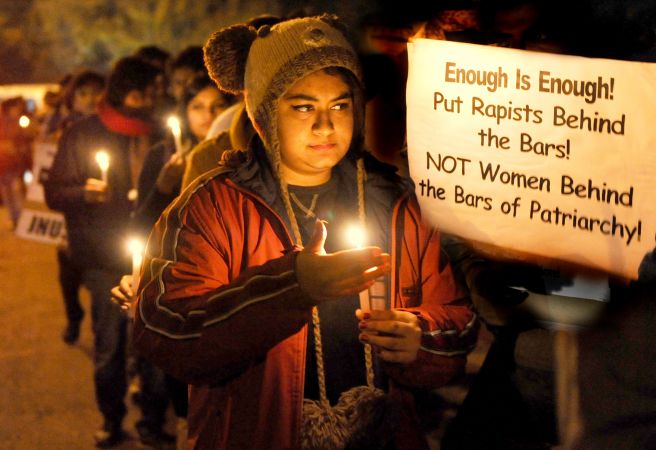
Judges who have passed erratic and controversial judgments in cases of rape and domestic violence in the past may now think twice before making conciliatory suggestions to the accused in order to settle the case. Days after Justice D Devadass of Madras High Court ordered mediation in a rape case, the Supreme Court came down firmly upon this judgment saying that there will no mediation or soft approach in rape cases.
The court held that it would be a “spectacular error” to adopt “any kind of liberal approach” in sexual assault cases. “The conception of compromise, under no circumstances, can be thought of in a case of rape or attempt to rape,” said a bench of Justices Dipak Misra and P C Pant.
“Dignity of a woman is a part of her non-perishable and immortal self and no one should ever think of painting it in clay. There cannot be a compromise or settlement as it would be against her honour, which matters the most. Any kind of liberal approach or a thought of mediation in this regard is thoroughly and completely sans legal permissibility,” it said.
Stating that any proposal by the accused to marry the victim was an attempt to put pressure, the court said: “We say with emphasis that the courts are to remain absolutely away from this subterfuge to adopt a soft approach to the case…”
The firm decision came even as the High Court order sparked widespread outrage. The victim, who was 14 when she was raped in 2008, has since lost her parents and is the mother of a child born after the rape.
Claiming that a similar case which he had referred for mediation was near a “happy conclusion,” (the accused had agreed to marry the victim), Justice Devadass, in his order, said: “In the facts and circumstances, the case before us is a fit case for attempting compromise between the parties.
“Did the judge ever think how I suffered all these years? He knew I had a baby from that rape. And now this single order of his wants me to go through that suffering again,” asked the victim during an interview with The Indian Express.
Today she is a 21-year-old woman, an unwed mother to a six-year-old girl living in a single room tenement in Cuddalore. “If I go for a settlement, one day my child will question me for taking up his offer of money. If I agree to his offer, may be we will get something. But what will be her future… being brought up as the daughter of a rapist,” she clamoured.
The girl was assaulted and raped two days before her class X examinations, after drugs were added to her cold drink. Her father was threatened and then assaulted to put pressure on the girl to go for an abortion.
“It was unfair on the part of the judge to give such a judgment without seeking my opinion. He forgot that I was the victim… After putting me into this ordeal for seven years, all of a sudden he (the rapist) agrees to marry me. All he wants is to step out of prison by agreeing to mediation,” she said.
It’s flabbergasting that the judge in question actually thought this case is fit for attempting ‘compromise between the two parties’.
In another case in Madhya Pradesh, the accused, Madan Lal, had sought to compromise with the parents of the seven-year-old victim but the trial judge junked his plea. It held him guilty and sentenced him to jail for five years in 2009. The high court, however, converted the charge into molestation and reduced his sentence to the time that he had already spent in jail, which was little over a year.
The state government challenged the ruling and appealed to the Supreme Court, which quashed the court order. The bench added that the high court judge appeared to be influenced by the compromise between the accused and the victim’s parents, which was impermissible.
It’s heartening to see the apex court of the land behave in a fair and sensible manner. It not only discourages wayward behaviour from judges, it even gives hope to victims that justice may finally happen, even if it is late.
Image Courtesy: BCCL
More on>> Balancing Act




